Submitted:
25 October 2023
Posted:
27 October 2023
You are already at the latest version
Abstract
Keywords:
1. Introduction
2. Motivation of the study
3. Proposed Approaches
3.1. Design of a thermo-acoustic generator
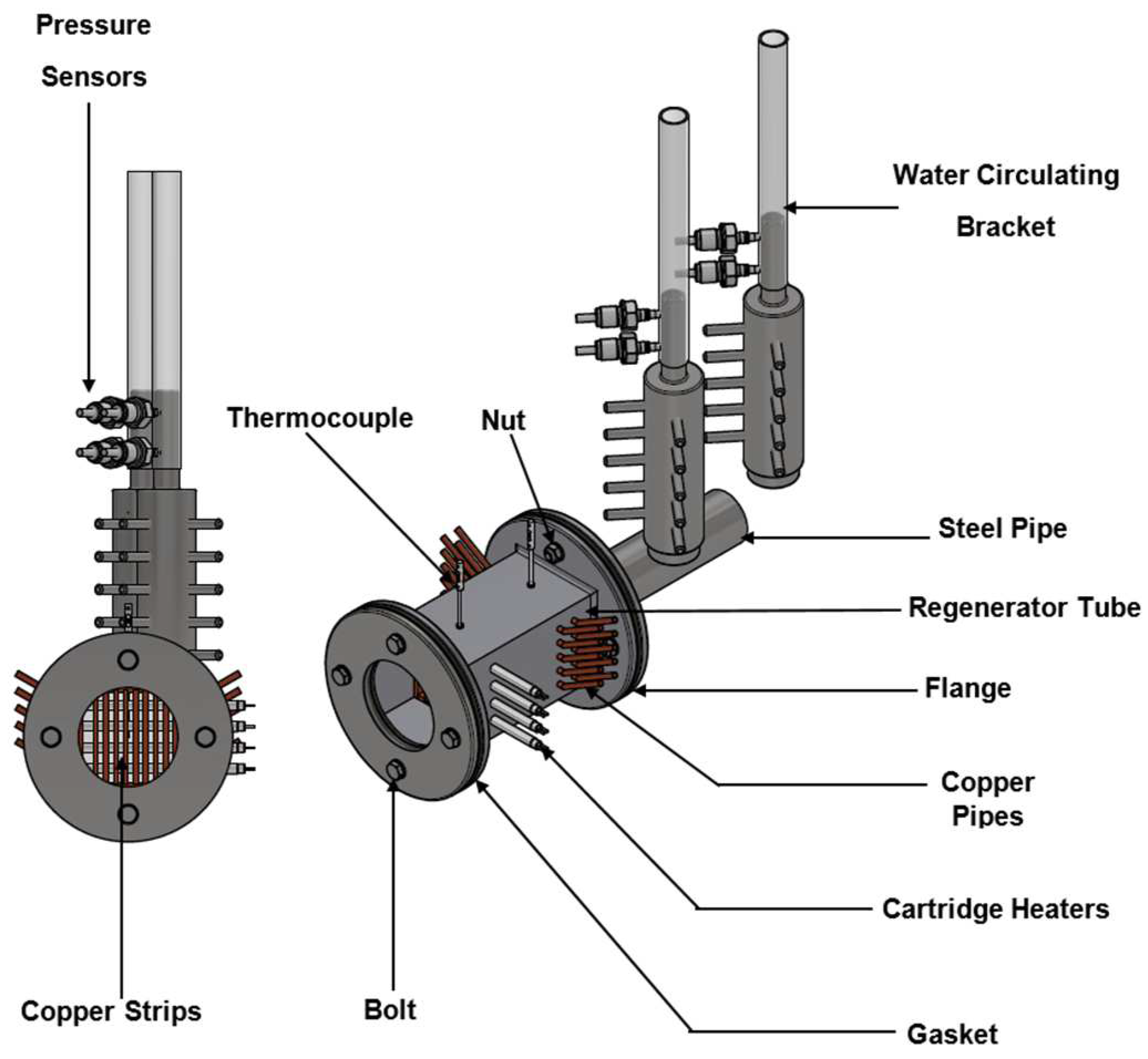
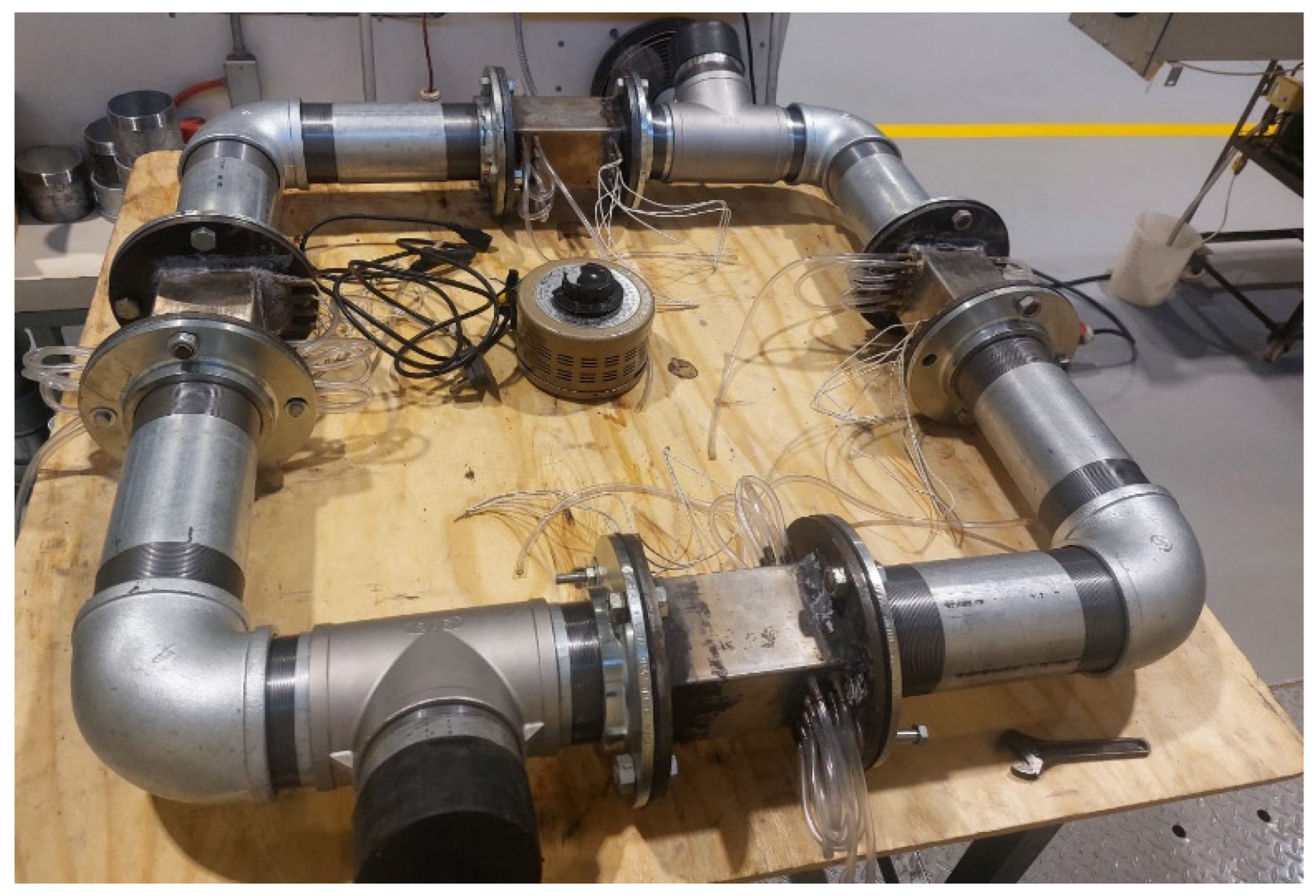
3.2. Temperature Measurements
3.3. Artificial Neural Network (ANN)

3.4. Adaptive Neuro Fuzzy-Inference System (ANFIS)
3.5. Hybrid ANN-PSO
4. Results and Discussion
4.1. Comparison of a temperature difference of a four-stage configuration
4.2. ANN Model Prediction
4.3. ANFIS Model Prediction
4.4. Analysis of ANN-PSO Models
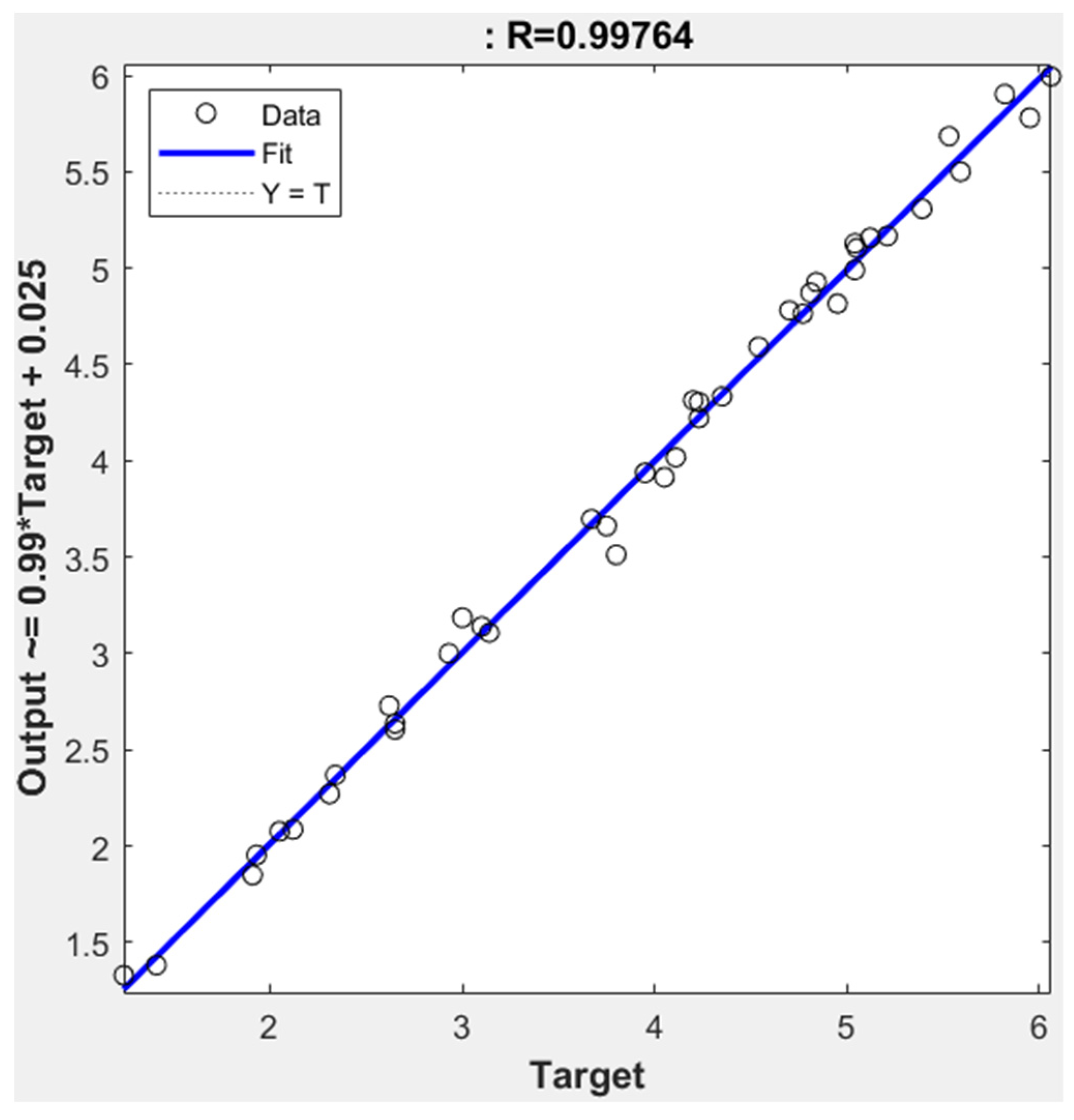
4.5. Comparison of results for ANN-PSO, ANFIS, and ANN
5. Conclusions
Data Availability Statement
Acknowledgments
Conflicts of Interest
References
- B. Radian, Artificial intelligence techniques for solar energy and photovoltaic applications. Robotics, concepts, methodologies, tools, and application, IGI Global, 2014 1661-1720.
- L. Fausett, Fundamentals of neural networks. Architectures, algorithms, and application. Pearson; 1st edition (December 19, 1993), ISBN-10: 0133341860, pp.9-20.Author 1, A.; Author 2, B. Book Title, 3rd ed.; Publisher: Publisher Location, Country, 2008; pp. 154–196.
- A. Rahman, X. Zhang, Prediction of acoustic-wave parameters of thermo-acoustic prime mover through Artificial Neural Network technique: practical approach for thermo-acoustics. Journal of thermal science and engineering progress, 8 (2018) 257-268.
- M. Okwu, LK. Tartibu, Metaheuristic Optimization: Nature-Inspired Algorithms Swarm and Computational Intelligence, Theory and Applications. Studies in Computational Intelligence, Vol 927, ISBN 978-3-030-61111-8 (eBook).
- A. Tarno, A. Rusgiyono, Sugito, Adaptive Neuro Fuzzy Inference System (ANFIS) approach for modeling paddy production data in Central Java. Journal of Physics: Conf. Series 1217 (2019) 012083. [CrossRef]
- S. Zare, A.R. Tavakolpour-saleh, A. Aghahosseini, M.H. Sangdani, R. Mirshekari, Design and Optimization of Stirling Engines Using Soft Computing Methods: A review. Journal of Applied Energy, vol.283 (2021) 116258.
- M.E.H. Tijani, J.C.H. Zeegers, A.T.A.M. De Waele, the optimal stack spacing for thermo-acoustic refrigeration. Journal of Acoustic Society of America, Vol. 112, Issue.1, pp. 128 -23. July 2002. [CrossRef]
- M. Ngcukayitobi, L.K. Tartibu, Construction, testing and performance analysis of a multi-stage travelling-wave thermo-acoustic generator. International Journal of Green Energy. February 2023. [CrossRef]
- T. Bi, Z. Wu, G. Yu, E. Luo, W. Dai. Development of a 5 kW traveling-wave thermo-acoustic electric generator. Applied Energy, vol. 185, pp. 1355-1361, 2016.
- Z. Wu, L. Zhang, W. Dai, E. Luo, Investigation on a 1 kW travelling-wave thermo-acoustic electrical generator. Applied Energy, vol. 124, pp.140-147, 2014.
- Z. Wu, W. Dai, M. Man, E. Luo, A solar-powered travelling-wave thermo-acoustic electricity generator. Solar Energy, vol. 86. pp. 2376 – 2382, 2012.
- M. Machesa, L.K Tartibu, M. Okwu, Prediction of the oscillatory heat transfer coefficient in thermos-acoustic refrigerators. Sustainability, vol. 13, issue.17, 9509. August 2021. [CrossRef]
- Toghyani S, Ahmadi MH, Kasaeian A, Mohammadi AH (2016) Artificial neural network, ANN-PSO and ANN-ICA for modelling the Stirling engine. Int J Ambient Energy 37(5):456–468.
- C. Duan, X. Wang, S. Shu, C. Jing, H. Chang, Thermodynamic Design of Stirling Engine Using multi-objective Particle Swarm Optimization Algorthm. Energy Convers Manage, vol. 84, pp.88-96, 2014.
- M.EH. Tijani, J.C.H. Zeegers, A.T.AM. De Waele ATAM, Design of thermo-acoustic refrigerators. Cryogenics, Vol. 42, pp. 49–57. [CrossRef]
- RS component thermocouples and sensors. RS PRO Type K Thermocouple 150mm Length, 6mm Diameter. https://docs.rsonline.com/bd9d/A700000007350778.pdf.
- A. Rahman, X. Zhang, Prediction of acoustic-wave parameters of thermo-acoustic prime mover through Artificial Neural Network technique: practical approach for thermo-acoustics. Journal of thermal science and engineering progress, 8 (2018) 257-268.

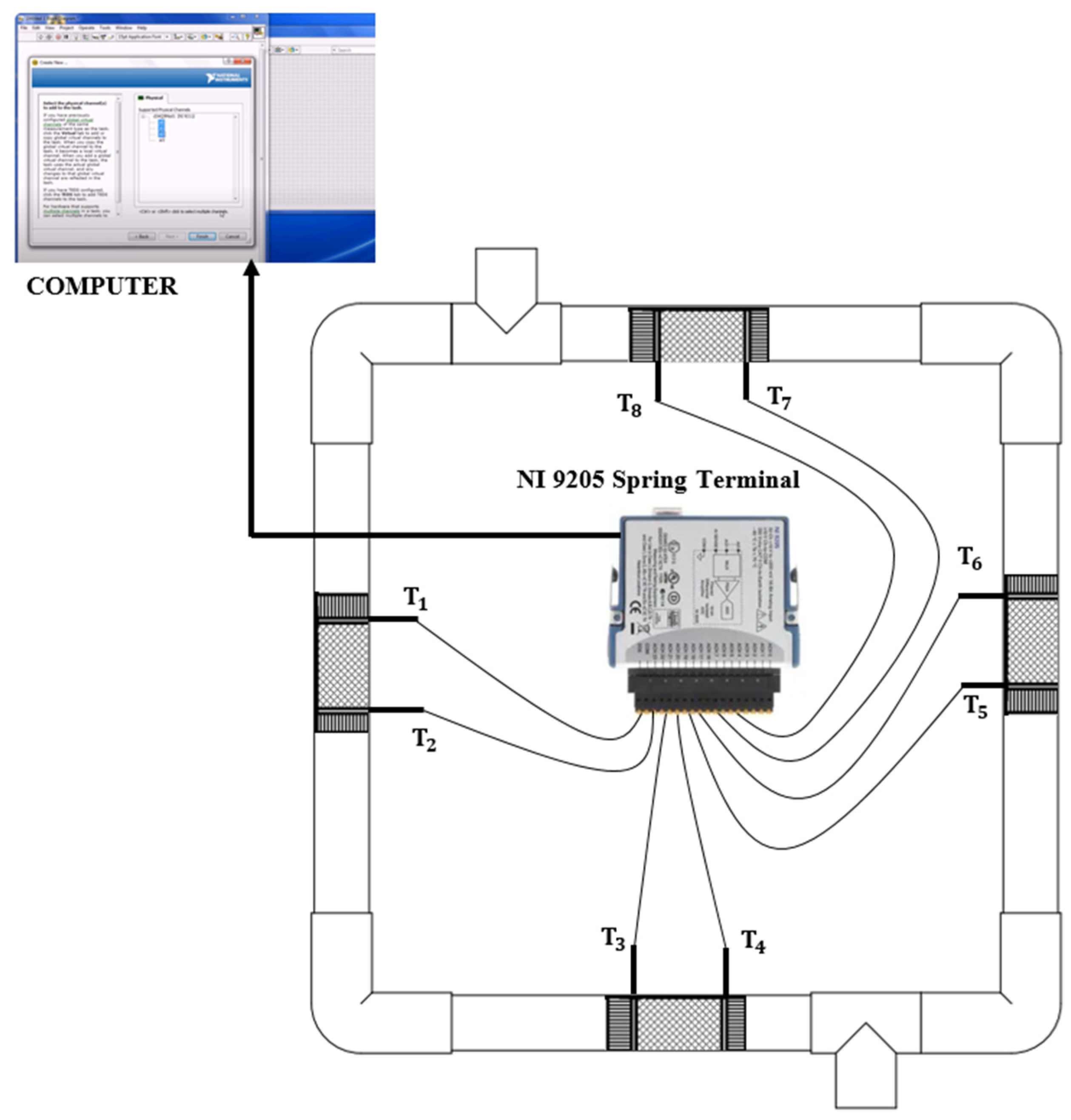
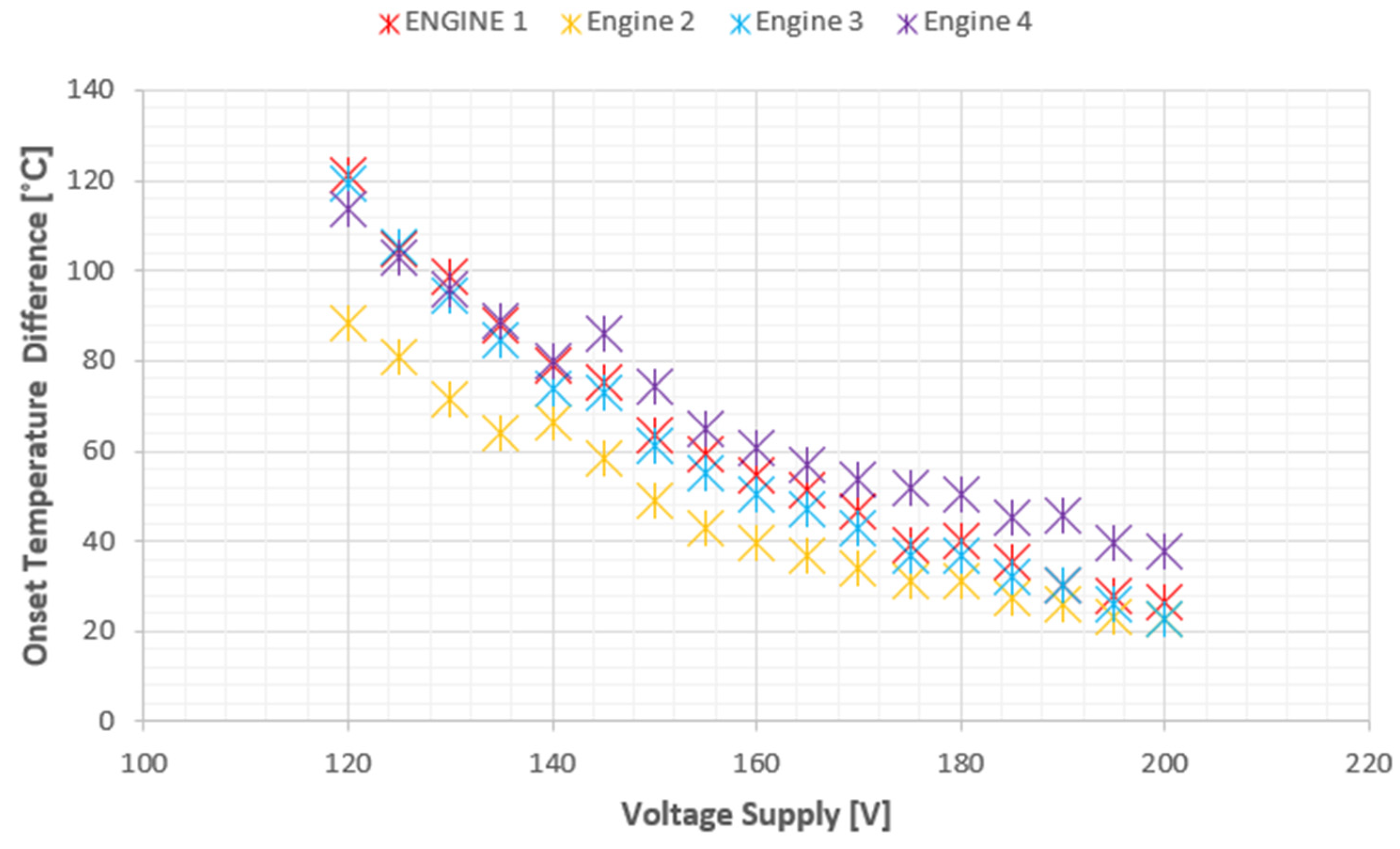
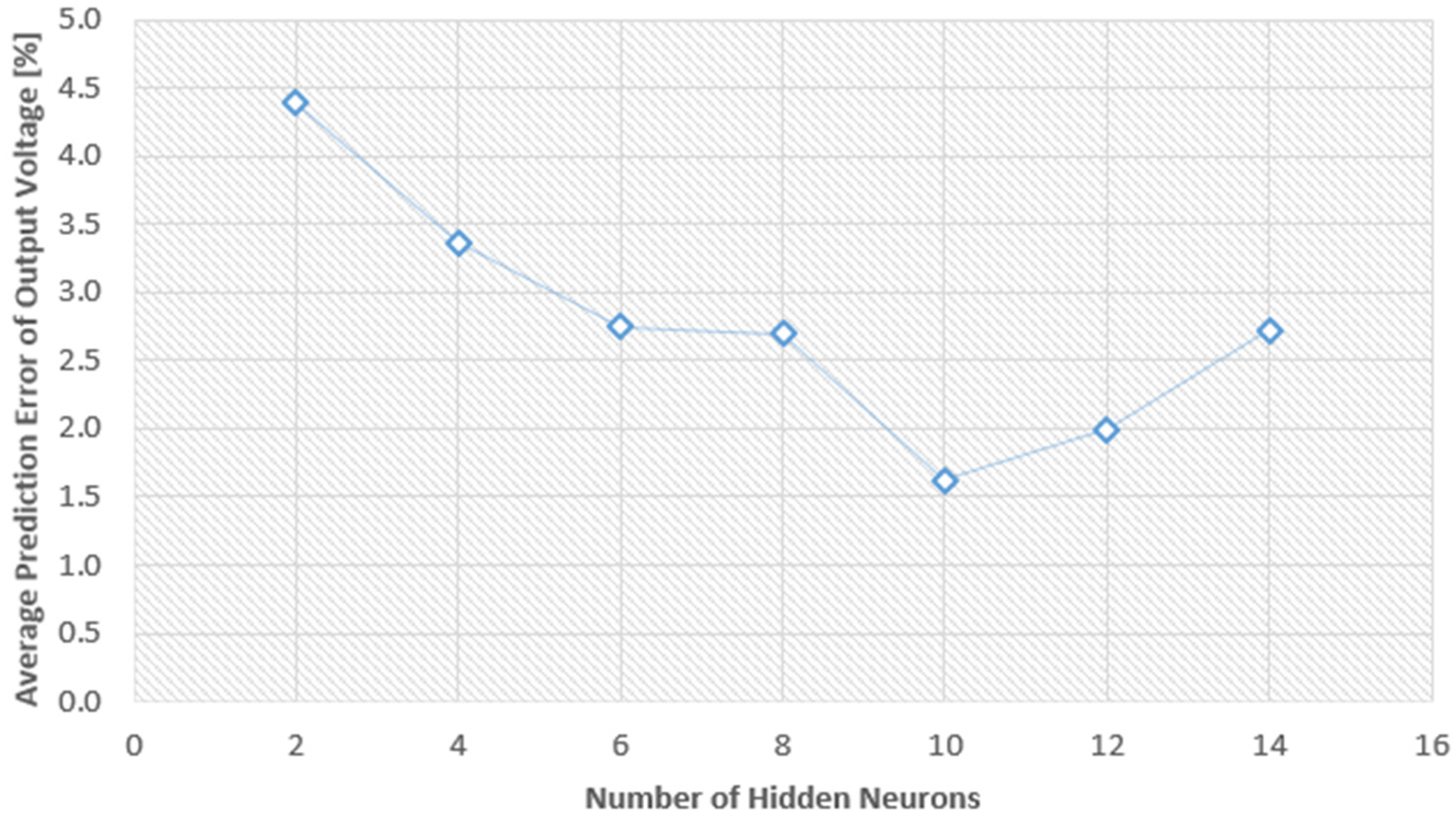
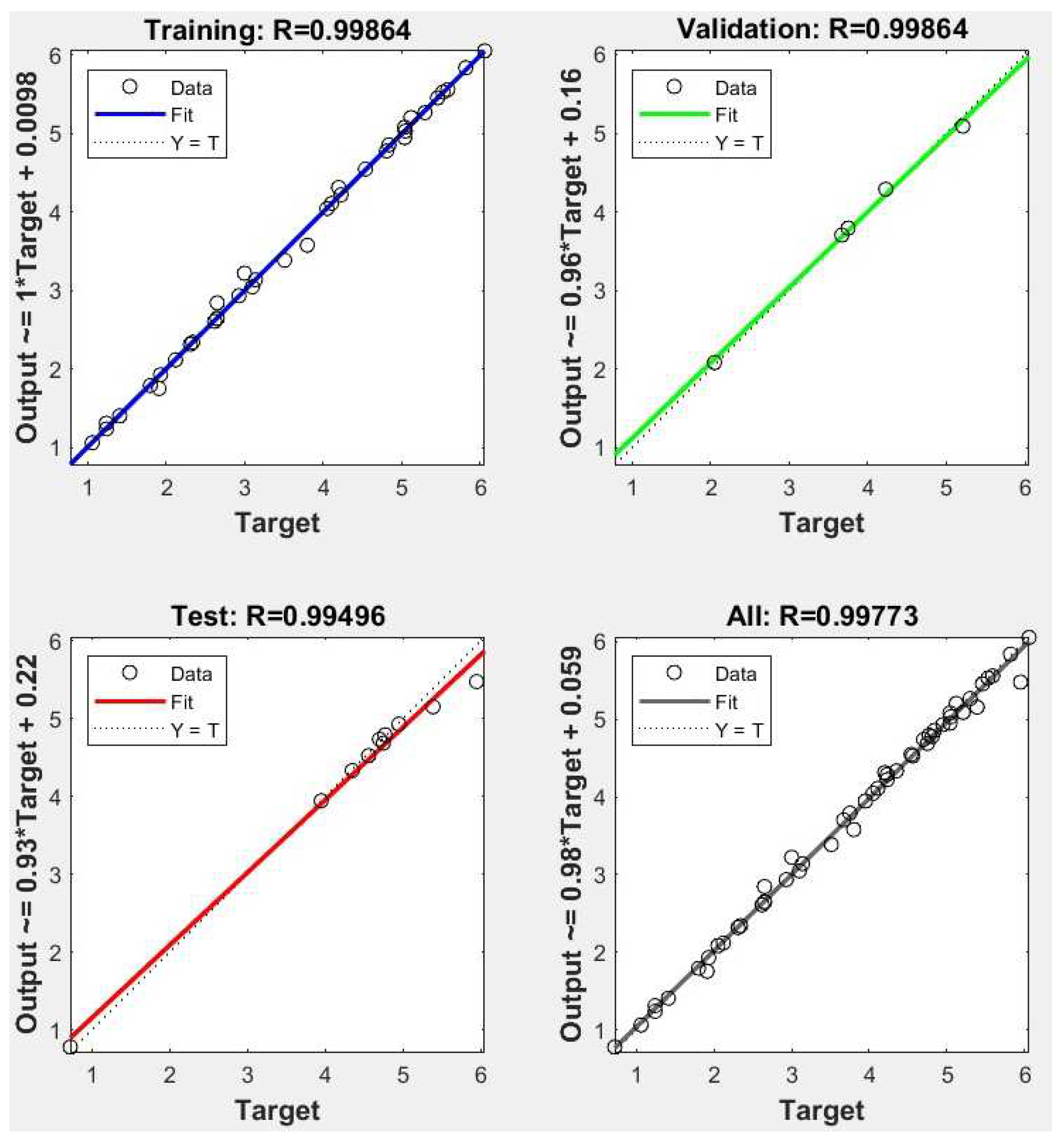
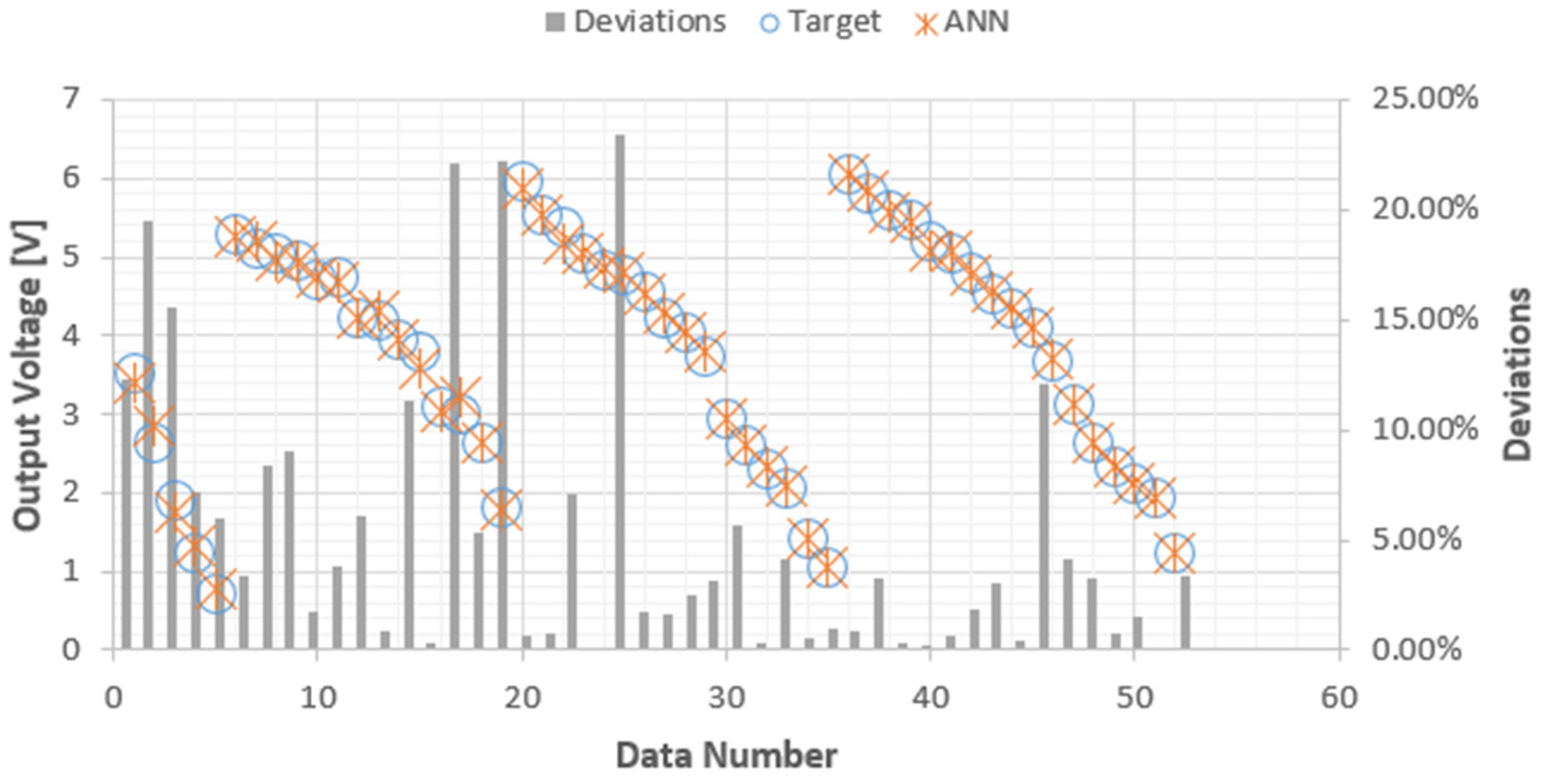
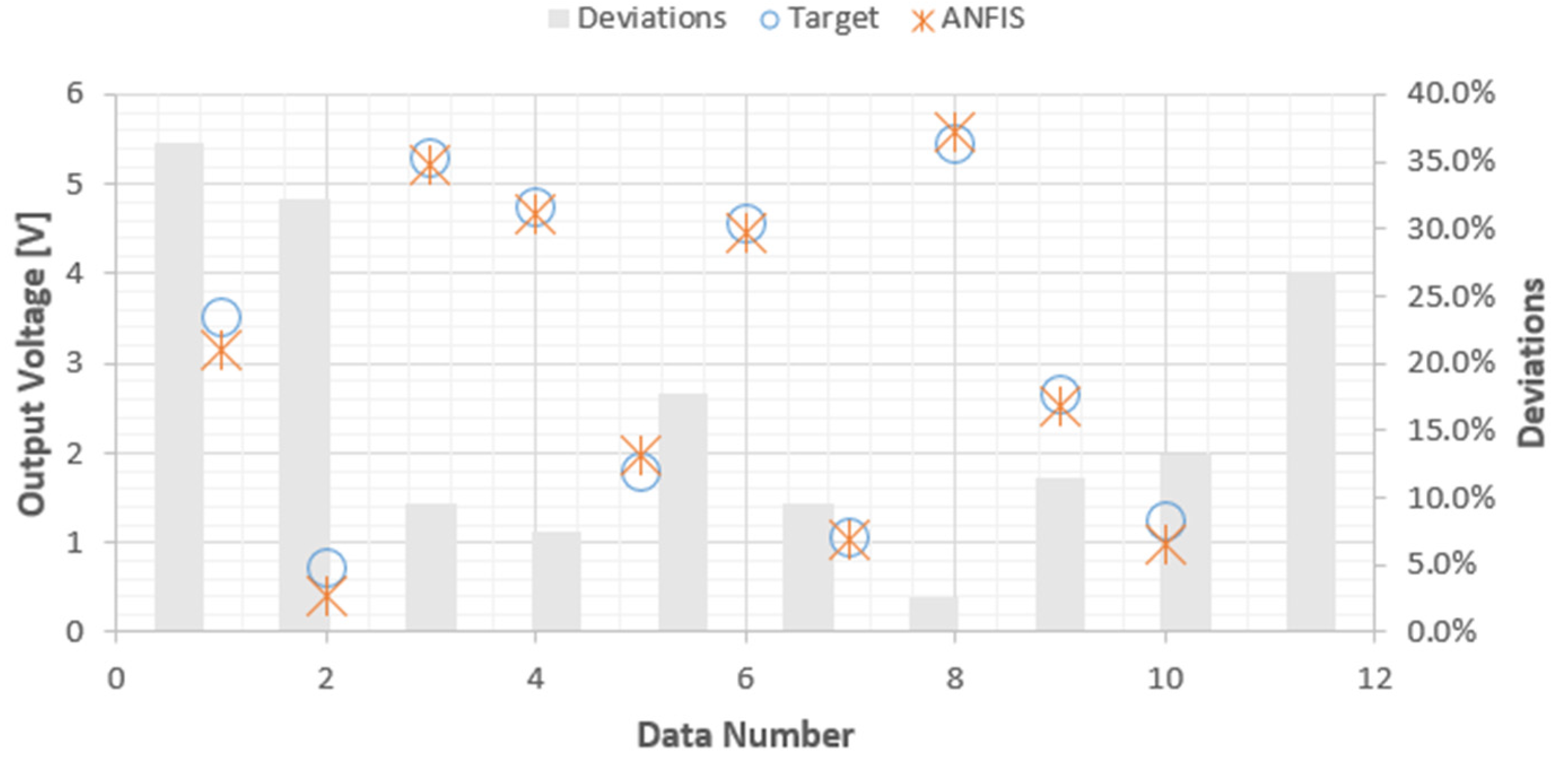
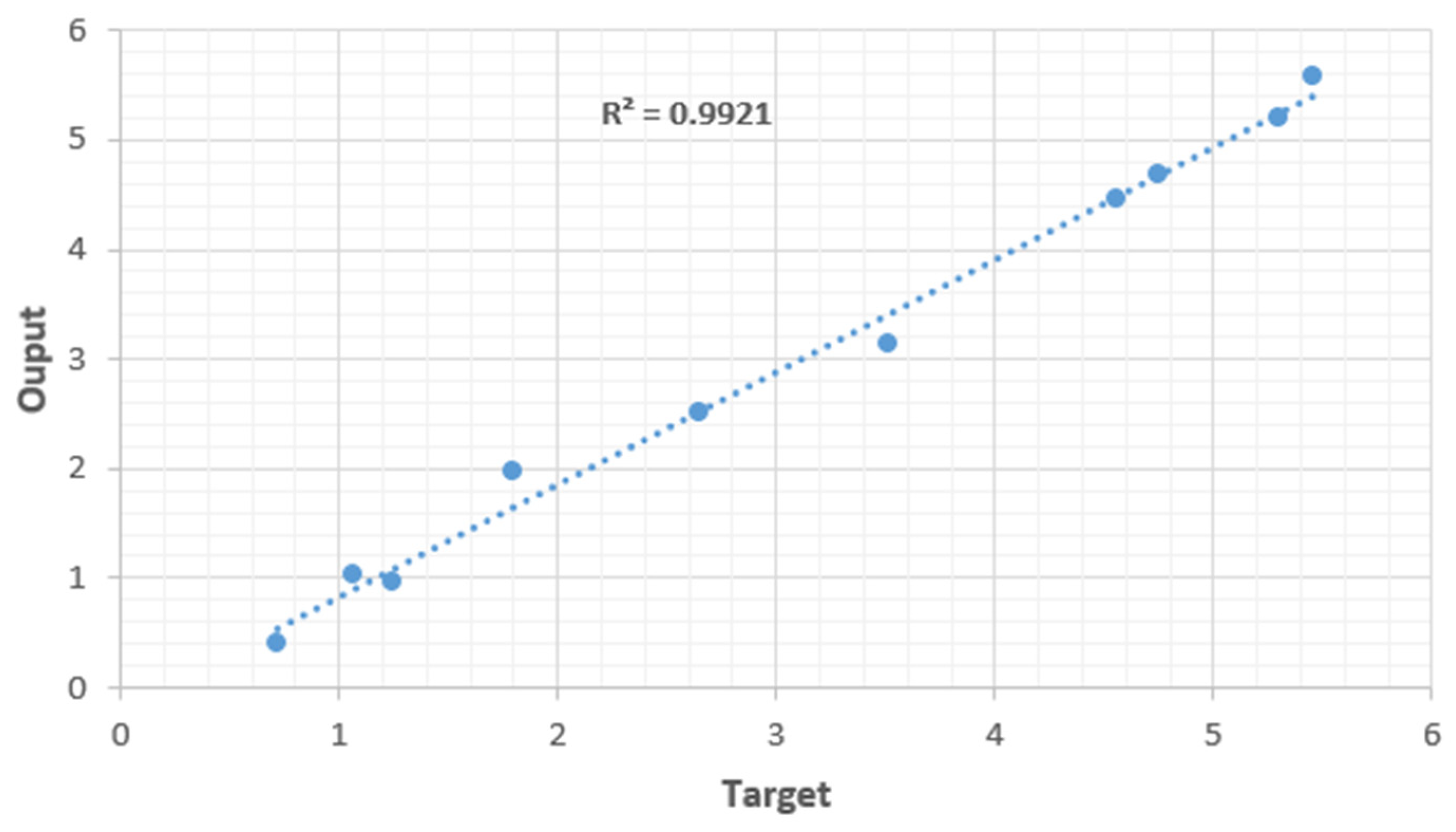
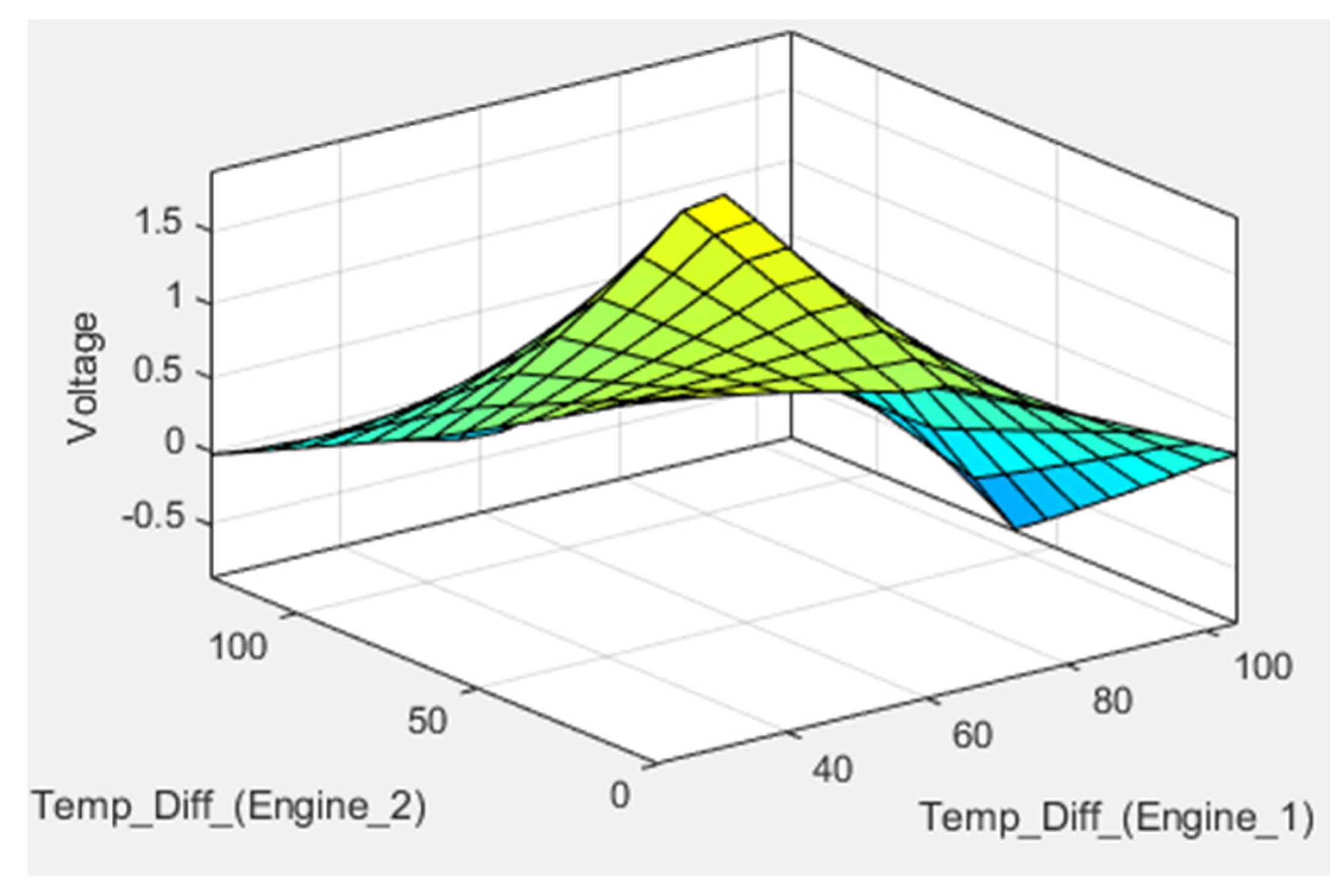
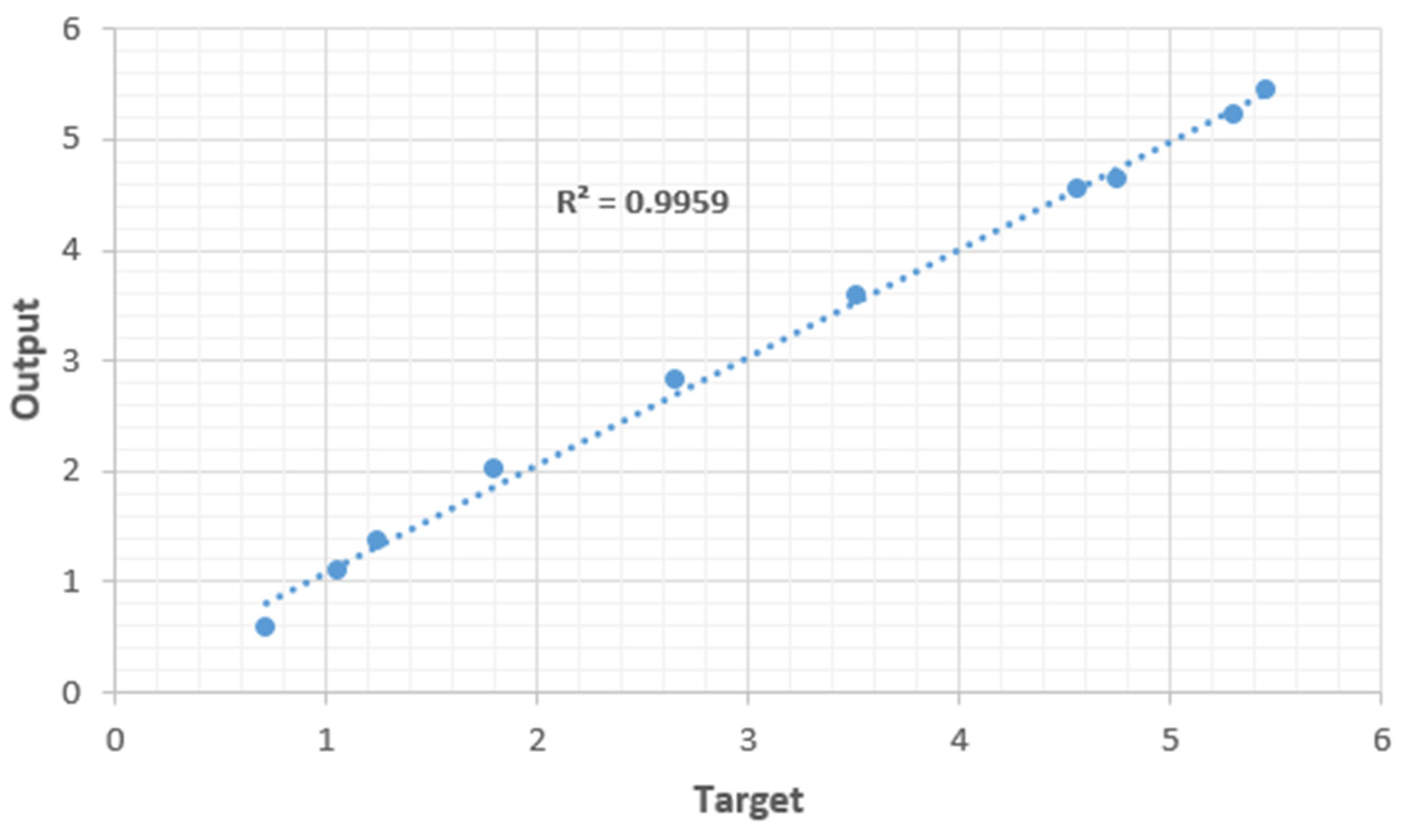
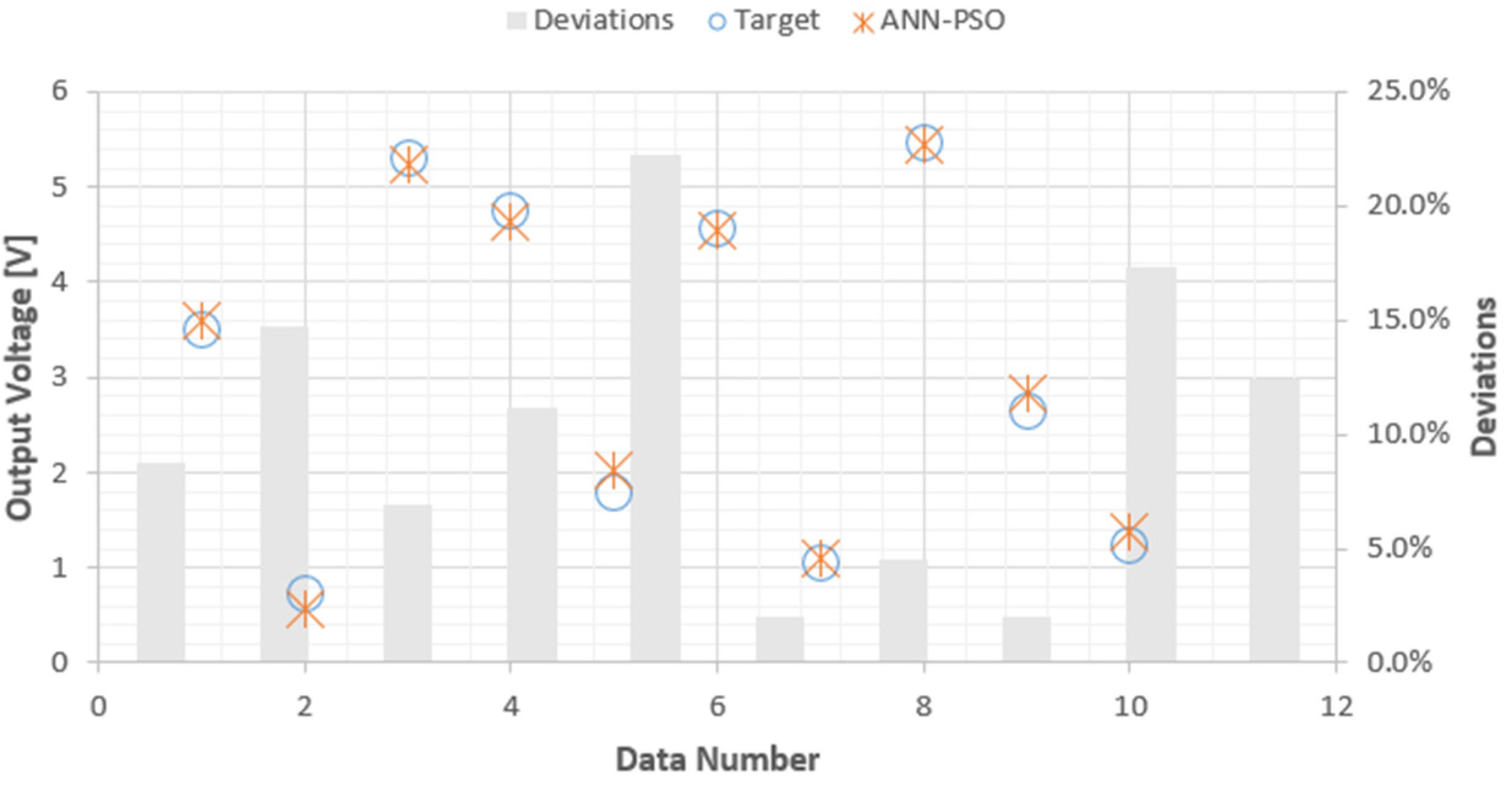
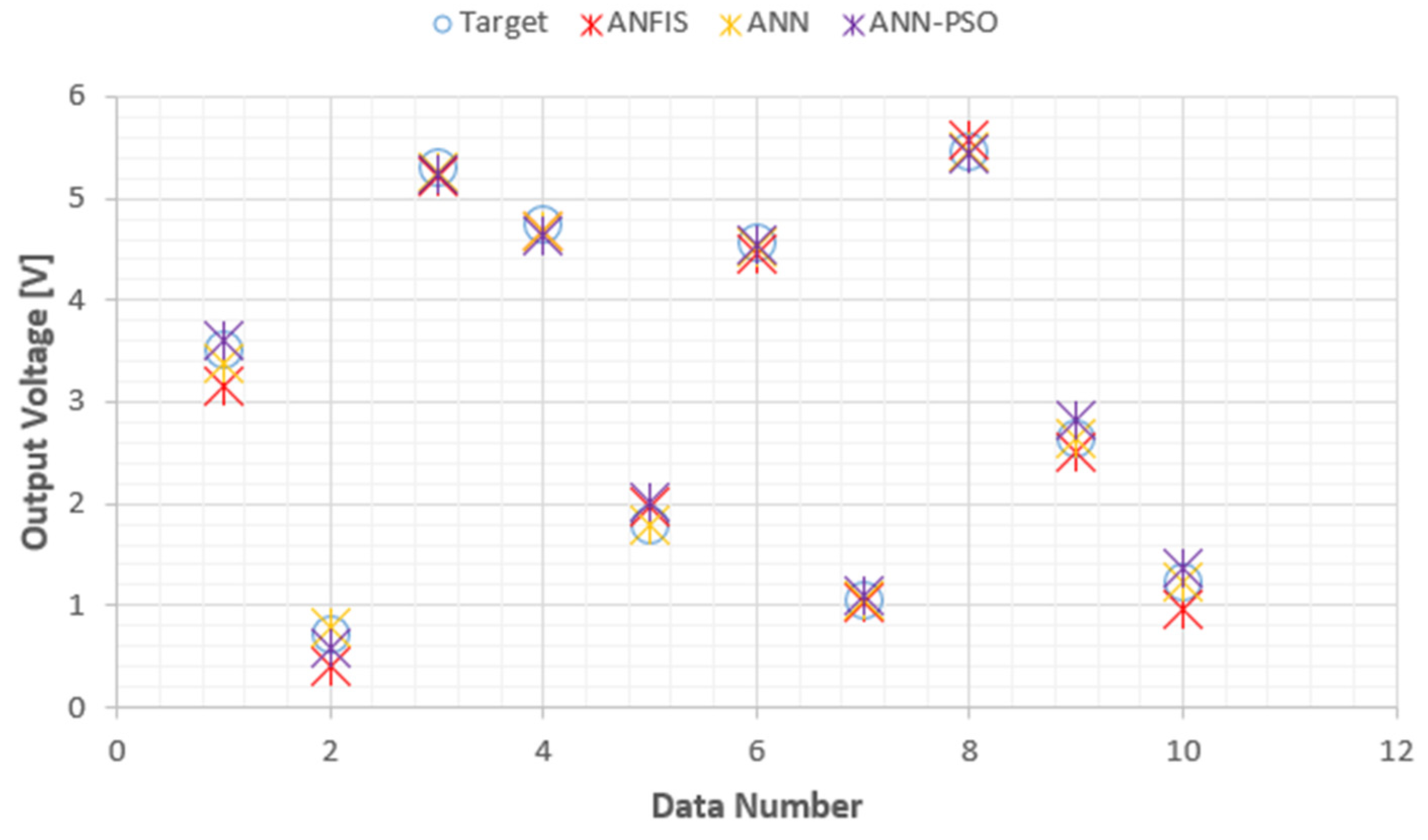
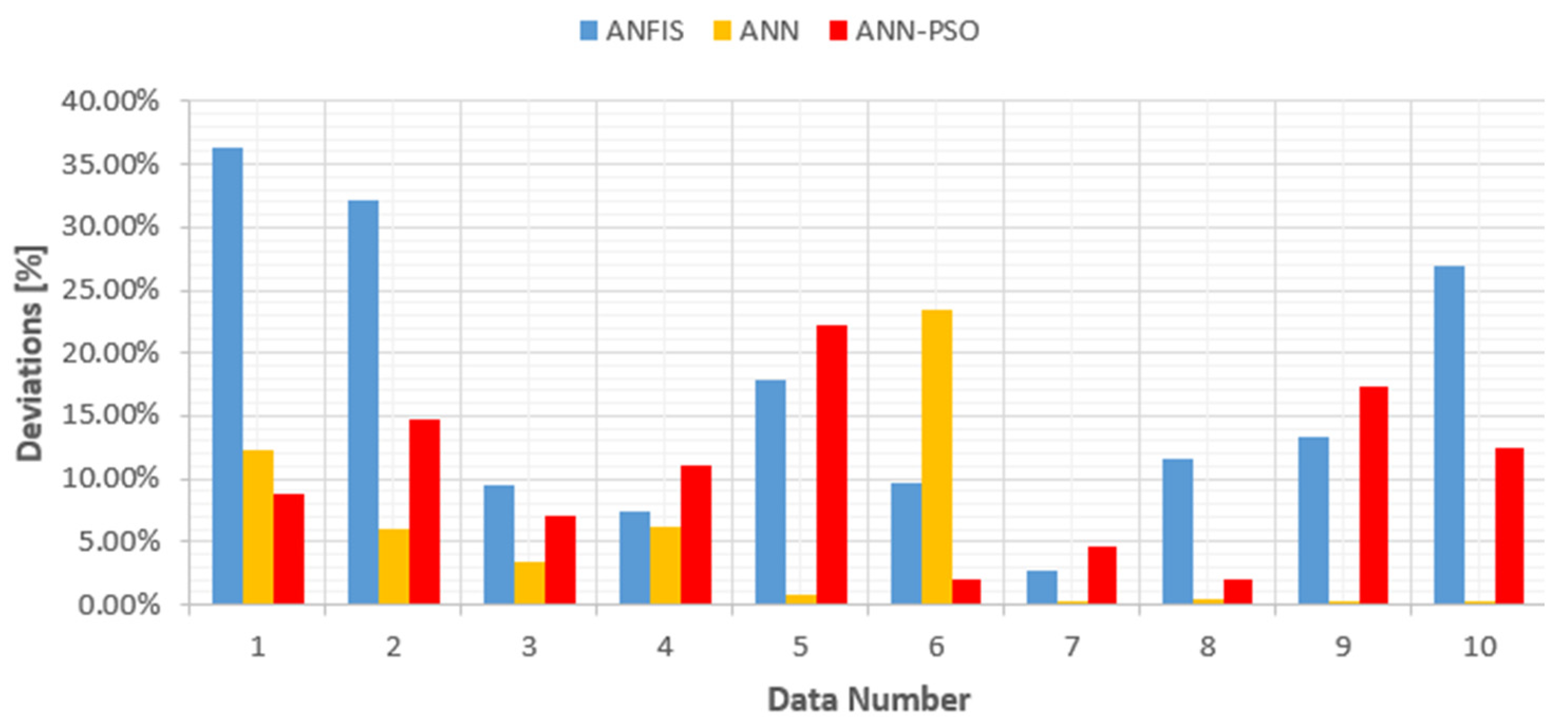
| No of Engine Stages | Output Voltage [V] | ||||
|---|---|---|---|---|---|
| 36.37 | 0 | 0 | 0 | 1 | 3.51 |
| 39.09 | 0 | 0 | 0 | 1 | 2.65 |
| 46.92 | 0 | 0 | 0 | 1 | 1.91 |
| 51.56 | 0 | 0 | 0 | 1 | 1.24 |
| 58.24 | 0 | 0 | 0 | 1 | 0.72 |
| 21.47 | 18.85 | 0 | 0 | 2 | 5.3 |
| 21.18 | 20.17 | 0 | 0 | 2 | 5.12 |
| 24.27 | 24.03 | 0 | 0 | 2 | 5.04 |
| 27.38 | 23.36 | 0 | 0 | 2 | 4.95 |
| 27.93 | 26.99 | 0 | 0 | 2 | 4.7 |
| 30.25 | 27.25 | 0 | 0 | 2 | 4.75 |
| 35.78 | 34.78 | 0 | 0 | 2 | 4.23 |
| 35.76 | 32.97 | 0 | 0 | 2 | 4.2 |
| 41.88 | 38.4 | 0 | 0 | 2 | 3.95 |
| 48.95 | 43.34 | 0 | 0 | 2 | 3.8 |
| 54.56 | 54.8 | 0 | 0 | 2 | 3.1 |
| 54.23 | 49.3 | 0 | 0 | 2 | 3 |
| 64.19 | 59.41 | 0 | 0 | 2 | 2.65 |
| 73.35 | 60.98 | 0 | 0 | 2 | 1.8 |
| 29.71 | 29.09 | 39.18 | 0 | 3 | 5.95 |
| 31.27 | 30.36 | 44.48 | 0 | 3 | 5.53 |
| 33.64 | 35.58 | 52.64 | 0 | 3 | 5.39 |
| 36.4 | 38.87 | 56.51 | 0 | 3 | 5.05 |
| 37.93 | 41.81 | 58.6 | 0 | 3 | 4.84 |
| 41.86 | 46.23 | 61.32 | 0 | 3 | 4.77 |
| 45.3 | 51.73 | 66.14 | 0 | 3 | 4.56 |
| 47.95 | 56.34 | 70.47 | 0 | 3 | 4.23 |
| 51.77 | 61.81 | 75.42 | 0 | 3 | 4.05 |
| 58.25 | 67.41 | 81.78 | 0 | 3 | 3.75 |
| 59.92 | 74.6 | 87.45 | 0 | 3 | 2.93 |
| 66.42 | 81.23 | 91.63 | 0 | 3 | 2.62 |
| 75.54 | 92.04 | 99.36 | 0 | 3 | 2.31 |
| 91.47 | 107.33 | 111.72 | 0 | 3 | 2.05 |
| 98.28 | 123.41 | 118.25 | 0 | 3 | 1.41 |
| 111.55 | 141.72 | 130.25 | 0 | 3 | 1.06 |
| 26.29 | 22.62 | 22.66 | 37.61 | 4 | 6.06 |
| 27.85 | 23.07 | 26.21 | 39.72 | 4 | 5.82 |
| 30.4 | 26.21 | 30.39 | 45.68 | 4 | 5.59 |
| 35.62 | 27.52 | 32.11 | 45.33 | 4 | 5.46 |
| 39.92 | 31.14 | 37.03 | 50.35 | 4 | 5.21 |
| 39.23 | 31.18 | 36.98 | 51.86 | 4 | 5.04 |
| 46.79 | 34.15 | 42.68 | 53.81 | 4 | 4.81 |
| 51.13 | 36.7 | 47.05 | 57.08 | 4 | 4.54 |
| 54.55 | 39.53 | 50.59 | 60.83 | 4 | 4.35 |
| 59.5 | 42.91 | 55.22 | 65.14 | 4 | 4.11 |
| 63.66 | 49.04 | 60.98 | 74.44 | 4 | 3.67 |
| 75.49 | 58.25 | 72.85 | 85.92 | 4 | 3.14 |
| 79.06 | 66.16 | 73.96 | 79.91 | 4 | 2.65 |
| 88.12 | 64.06 | 84.78 | 88.83 | 4 | 2.34 |
| 98.61 | 71.28 | 94.54 | 95.82 | 4 | 2.12 |
| 104.81 | 80.76 | 105.31 | 102.96 | 4 | 1.93 |
| 121.23 | 88.21 | 119.23 | 113.8 | 4 | 1.24 |
| Number of neurons | Swarm population size | Acceleration factors |
MSE | |||
|---|---|---|---|---|---|---|
| 5 | 10 | 2.25 | 2 | 0.98675 | 0.0459 | 0.9124 |
| 5 | 20 | 2.25 | 2 | 0.99070 | 0.0323 | 0.8843 |
| 5 | 50 | 1.5 | 2.25 | 0.99456 | 0.0189 | 0.9439 |
| 5 | 100 | 1 | 2.75 | 0.99519 | 0.0167 | 0.9481 |
| 5 | 200 | 1.5 | 2 | 0.99599 | 0.0139 | 0.9840 |
| 5 | 400 | 1.5 | 2 | 0.99590 | 0.0142 | 0.9714 |
| 6 | 10 | 1 | 3 | 0.99553 | 0.0155 | 0.9232 |
| 6 | 20 | 2 | 2.25 | 0.98119 | 0.0663 | 0.9190 |
| 6 | 50 | 1 | 2.5 | 0.99587 | 0.0143 | 0.9743 |
| 6 | 100 | 1 | 2.5 | 0.99633 | 0.0128 | 0.8290 |
| 6 | 200 | 1 | 2.75 | 0.99617 | 0.0133 | 0.9200 |
| 6 | 400 | 1 | 2.25 | 0.99505 | 0.0172 | 0.9661 |
| 7 | 10 | 1.5 | 2.5 | 0.99522 | 0.0166 | 0.9478 |
| 7 | 20 | 1 | 2.75 | 0.99563 | 0.0152 | 0.9544 |
| 7 | 50 | 1 | 2.5 | 0.99519 | 0.0167 | 0.9640 |
| 7 | 100 | 1 | 2.5 | 0.99386 | 0.0213 | 0.9566 |
| 7 | 200 | 1.5 | 2.25 | 0.99365 | 0.0220 | 0.9811 |
| 7 | 400 | 2 | 2 | 0.99442 | 0.0194 | 0.9497 |
| 8 | 10 | 1 | 2.75 | 0.99499 | 0.0174 | 0.9871 |
| 8 | 20 | 1 | 2.5 | 0.99563 | 0.0152 | 0.9391 |
| 8 | 50 | 1.5 | 2.25 | 0.99551 | 0.0156 | 0.9630 |
| 8 | 100 | 1 | 2.5 | 0.99741 | 0.0090 | 0.9740 |
| 8 | 200 | 1 | 2.75 | 0.99762 | 0.0083 | 0.9844 |
| 8 | 400 | 1 | 2.25 | 0.99522 | 0.0026 | 0.9959 |
| 9 | 10 | 1 | 2.75 | 0.98904 | 0.0380 | 0.8716 |
| 9 | 20 | 1 | 3 | 0.99618 | 0.0133 | 0.9667 |
| 9 | 50 | 1.5 | 2.25 | 0.99408 | 0.0206 | 0.9697 |
| 9 | 100 | 2 | 2 | 0.99362 | 0.0222 | 0.9559 |
| 9 | 200 | 1.5 | 2.25 | 0.99533 | 0.0162 | 0.9593 |
| 9 | 400 | 1 | 2.5 | 0.99704 | 0.0103 | 0.9796 |
| 10 | 10 | 1 | 2.75 | 0.99485 | 0.0179 | 0.9406 |
| 10 | 20 | 1.5 | 2.5 | 0.99470 | 0.0184 | 0.9480 |
| 10 | 50 | 1.5 | 2.5 | 0.99656 | 0.0120 | 0.9555 |
| 10 | 100 | 1 | 2.75 | 0.99645 | 0.0123 | 0.9459 |
| 10 | 200 | 1 | 2.75 | 0.99764 | 0.0082 | 0.9717 |
| 10 | 400 | 1.5 | 2.5 | 0.99419 | 0.0202 | 0.9738 |
| Output Voltage | ||
| (Training or Testing) | MSE (Training or Testing) | |
| ANN-PSO | 0.99764/0.9959 | 0.0026/- |
| ANN | 0.99864/0.99496 | 5.89257e-3/2.87704e-2 |
| ANFIS | 0.9981/0.9921 | 0.0574524/0.0574534 |
Disclaimer/Publisher’s Note: The statements, opinions and data contained in all publications are solely those of the individual author(s) and contributor(s) and not of MDPI and/or the editor(s). MDPI and/or the editor(s) disclaim responsibility for any injury to people or property resulting from any ideas, methods, instructions or products referred to in the content. |
© 2023 by the authors. Licensee MDPI, Basel, Switzerland. This article is an open access article distributed under the terms and conditions of the Creative Commons Attribution (CC BY) license (http://creativecommons.org/licenses/by/4.0/).





